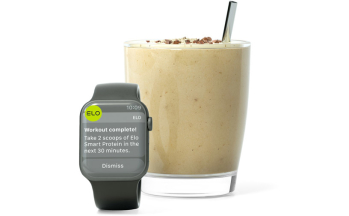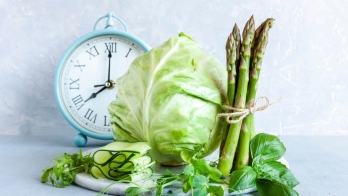Got a running injury? These are the best supplements according to science.
No runner wants to deal with an injury yet most of us will encounter one at some point. While there's no true replacement for rest, rehab and patience - these supplements can support healing and help get you running again.

Sidelined. A reality that no runner wants to face, but so many of us have come up against it. Sometimes we get weeks of warning signs. Other times, injuries happen in an instant. No matter the cause, staring face-to-face with an injury comes with the realization that recovery will take time and patience, rest, and rehab.
Nutrition may not be top of mind for an injured runner, however, there are several nutrients that can complement your rehab program and get you back out there a little faster.

Protein
Let’s start with the big one - protein. Protein is made up of amino acids, which are the building blocks of our body’s cells, tissues, and muscles. Protein supports both muscle repair and maintenance and a reduction in protein intake can increase muscle loss and, therefore, strength [1]
One of the most common mistakes runners make is to slash calorie (and protein) intake during periods of injury. While you may need a few less calories than usual, you still need to get enough fuel to support the energy demands of healing. This is especially true for protein because of its role in building new tissue and stimulating muscle protein synthesis.
Moreover, consuming enough protein while you're injured may help prevent muscle loss, maintain strength and improve weight management [1]
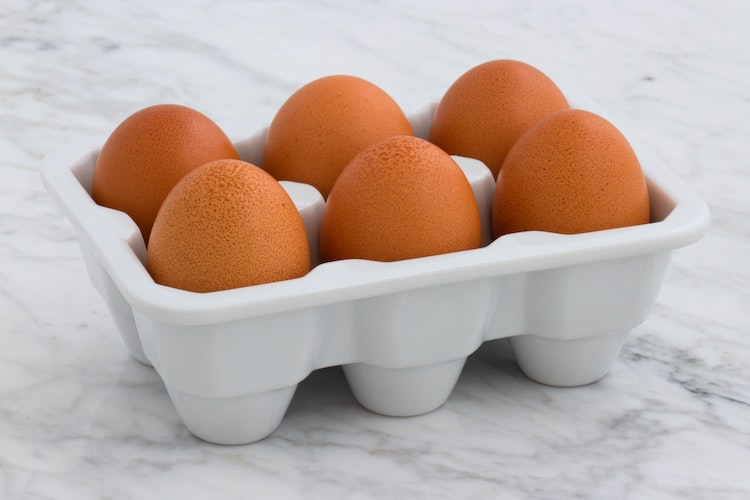
Protein dosing
Aim for 2 - 2.5g protein/kg/day spread throughout the day, with no more than 30-40g protein per meal or snack [ 1 2 [1]
Sources of protein
Eat a variety of protein-rich whole foods such as skinless poultry, low mercury seafood, Greek yogurt, beans, tofu, and lean meat. Fill in the gaps with a high-quality whey or plant protein if you're struggling to meet your protein needs.
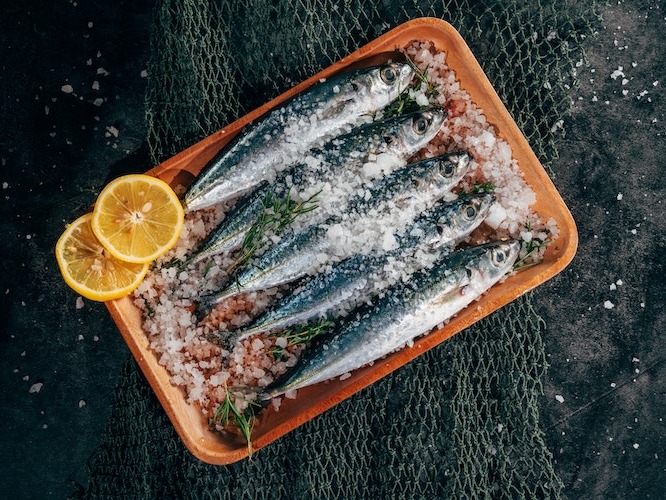
Omega-3 fatty acids
Every injury comes with inflammation. Inflammation is typically highest in the first 48 hours after the injury occurs, although it varies depending on the type of injury. And while extreme inflammation should subside after a few days, lingering inflammation can impede recovery. This is where omega-3 fatty acid supplementation (or consuming fatty fish several times a week) can offer support.
Omega-3s are polyunsaturated fats that block inflammatory markers and fight inflammation. Your body can not make omega-3s - which include EPA (eicosapentaenoic acid), DPA (docosahexaenoic acid), and ALA (alpha-linolenic acid) - so getting them through your diet or supplementation is important regardless of injury status. (Read more about the benefits of omega-3 fats here).
Emerging research suggests that omega-3 supplementation may play a role in both recovery and injury prevention in athletes. Specifically, omega-3 fats seem to counter muscle loss by increasing muscle synthesis [3, 4]
However, there’s a catch. Omega-3 supplementation may impair wound healing so if you’re dealing with nasty scrapes and scratches, you might want to give this one a miss (albeit temporarily).
Omega-3 dosing
Evidence to date indicates that 1.5-2g/day of EPA and DHA may be helpful for endurance, recovery, and adaptation to training.
Sources of omega-3s
A fish oil or algal supplement is generally the easiest way to get 1.5-2g/day of EPA and DHA, however, low-mercury fatty fish such as salmon, trout, sardines, and herring, can also help round out your omega-3 intake (and meet protein needs).
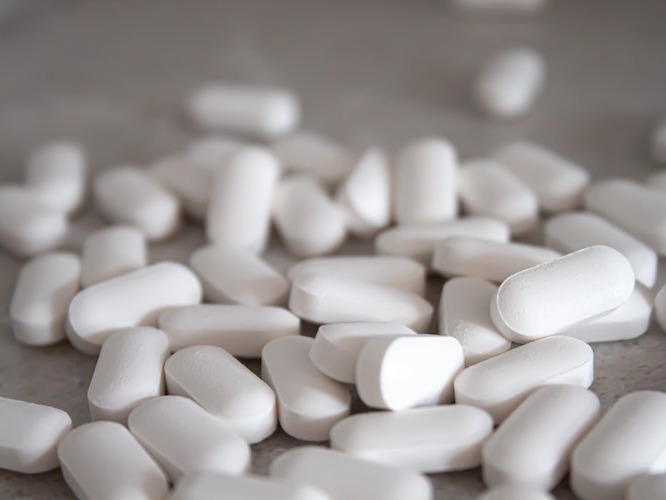
Glucosamine and chondroitin
Joint stiffness and pain are common among runners, and can be exacerbated by hard training cycles, jumps in mileage, or simply getting older. Glucosamine and chondroitin are natural compounds found in joints and cartilage and may help ease joint pain and slow joint degradation, especially in knees and hips [5 6]
Glucosamine and chondroitin dosing
The recommended dosage for glucosamine sulfate is 300-500mg 3x/day for a total of 900-1500mg/day. Alternatively, up to 3000mg glucosamine sulfate salts/day can be taken as a single dose [5]
For chondroitin, a single or divided dose of 1000-1200mg/day appears to help most helpful for joint issues [6]
Sources of glucosamine and chondroitin
Supplementation is the only option for consuming adequate amounts of glucosamine and chondroitin for joint health. Glucosamine is typically harvested from shellfish, while chondroitin is usually produced synthetically.
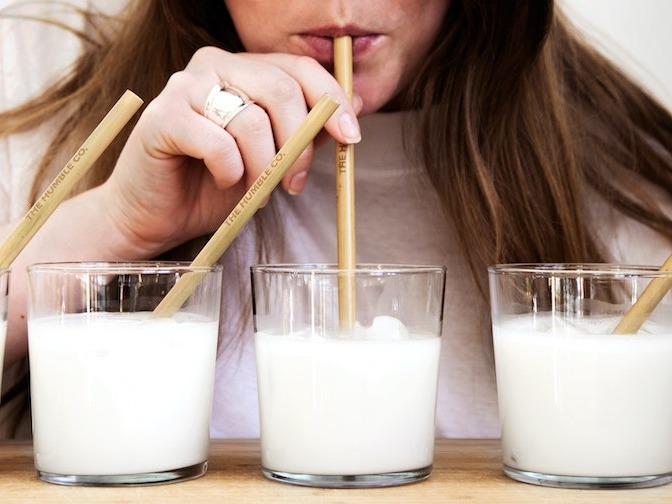
Calcium and vitamin D
Calcium and vitamin D go hand-in-hand and are especially important if you have a bone-related injury. Ninety-nine percent of calcium in our body can be found in our bones and teeth, but it also plays an important role in regulating muscle contractions, nerve conduction, and blood clotting [2]
Vitamin D is a fat-soluble vitamin that increases calcium absorption in the gut and is therefore vital for a strong skeleton [7] [8]
While daily calcium needs can be achieved through diet, vitamin D is harder to come by and almost everyone can benefit from supplemental vitamin D (unless you live at the equator).
Calcium and vitamin D dosing
The recommended dietary allowances for calcium are [9]
Women:
1000mg/day (age 19-50)
1200mg/day (51+).
Men:
1000mg/day (age 19-70)
1200mg/day (71+).
For Vitamin D, the recommended daily allowance for both men and women 19-70 years old is 15 mcg/day (600 - 800IU) but some evidence suggests that 50mcg or more (2000IU+) may be helpful for certain people [7]
Sources of calcium and vitamin D
Before you go all-in on calcium supplements, it’s worthwhile assessing if you get (or can get) adequate calcium from dietary sources including yogurt/milk/cheese, canned salmon with bones, canned sardines, broccoli & kale, and fortified foods including juice, cereals and plant-based milk [9]
If you need a supplement, look for calcium citrate and take in divided doses to maximize absorption. Take iron and calcium supplements at separate times since iron interferes with calcium absorption and vice versa.
Vitamin D can be synthesized in our skin from cholesterol and exposure to sunlight, however, few of us get enough sun all year round to rely solely on endogenous vitamin D. Vitamin D is only found in a few foods such as cod liver oil, salmon, and fortified milk, and supplemental vitamin D3 is the best option for many.
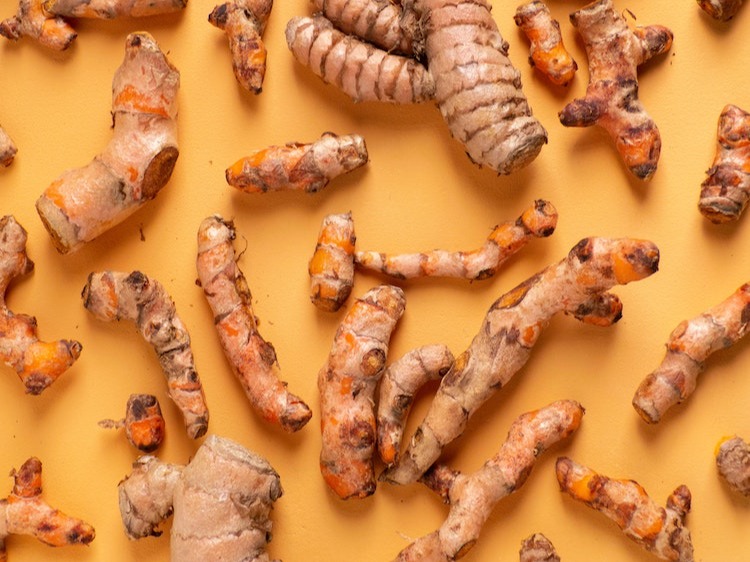
Turmeric / Curcumin
Turmeric is a powerful anti-inflammatory agent and has been used for centuries as a traditional remedy for everything from digestive issues to skin health [10] [11]
Studies show that curcumin may be helpful for alleviating pain and inflammation in people with osteoarthritis, a common issue among runners (years of pounding pavement can be tough on joints) [11]
Furthermore, a handful of trials have shown that curcumin may be beneficial for fighting inflammation and reducing muscle soreness after exercise, although this research is still in its early stages [11]
Turmeric dosing
1000mg/day of curcumin for 8-12 weeks seems to be most effective for relieving osteoarthritis pain and inflammation [11]
For reducing muscle soreness, 400mg-2000mg curcumin/day in the days leading up to and following exercise appears to be most effective [11]
Interestingly, taking curcumin together with black pepper has been shown to increase the bioavailability of curcumin by up to 2000% which is a major plus for a compound that has poor bioavailability [12]
Turmeric sources
Adding turmeric to dishes at home can enhance flavor and color, however, it’s unlikely to provide enough curcumin to kick joint pain and inflammation. Curcumin supplementation is generally the easiest and most effective way for runners to reap the joint and muscle benefits.
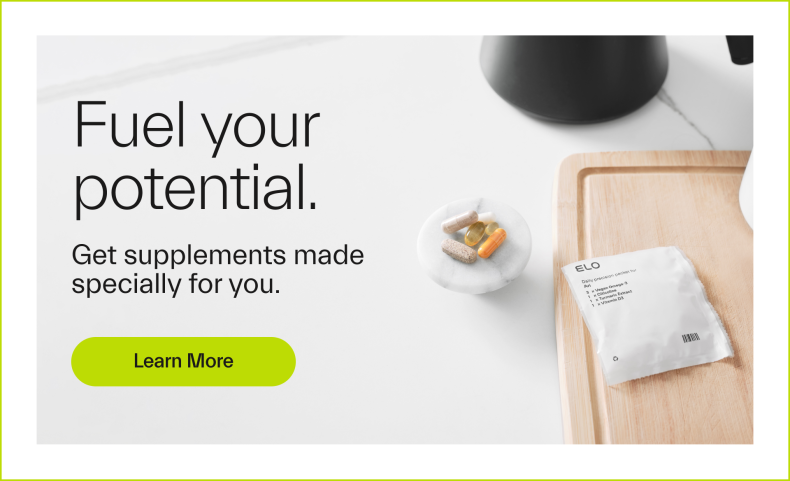
Summary
Nutrition tactics such as consuming adequate protein and adding in a few strategic supplements can be beneficial for runners recovering from an injury - but they shouldn’t be the only things that you’re doing to help your body repair. Rest, rehab, adequate calories and a diversity of minimally-processed whole foods should also be part of your recovery plan. No runner likes to be sidelined, however, a little extra effort (and patience) now can save you a whole lot of pain and heartache later.
As always, check with your doctor before starting supplements if you have a pre-existing condition.
And when you're ready to start running again, check out our Ultimate guide to nutrition for running performance.
Disclaimer: The text, images, videos, and other media on this page are provided for informational purposes only and are not intended to treat, diagnose or replace personalized medical care.
Key Takeaways
While you may need a few less calories than usual, you still need to get enough fuel to support the energy demands of healing.
Omega-3 supplementation may play a role in both recovery and injury prevention in athletes to counter muscle loss by increasing muscle synthesis [3, 4].
Glucosamine and chondroitin are natural compounds found in joints and cartilage and may help ease joint pain and slow joint degradation, especially in knees and hips [5, 6].
Calcium and vitamin D go hand-in-hand and are especially important if you have a bone-related injury.
Studies show that curcumin, found in turmeric, may be helpful for alleviating pain and inflammation in people with osteoarthritis, a common issue among runners [11].
References
Tipton K. D. (2015). Nutritional Support for Exercise-Induced Injuries. Sports medicine (Auckland, N.Z.), 45 Suppl 1, S93–S104.
https://doi.org/10.1007/s40279-015-0398-4
Thomas, D. T., Erdman, K. A., & Burke, L. M. (2016). Position of the Academy of Nutrition and Dietetics, Dietitians of Canada, and the American College of Sports Medicine: Nutrition and Athletic Performance. Journal of the Academy of Nutrition and Dietetics, 116(3), 501–528.
https://doi.org/10.1016/j.jand.2015.12.006
Philpott, J. D., Witard, O. C., & Galloway, S. (2019). Applications of omega-3 polyunsaturated fatty acid supplementation for sport performance. Research in sports medicine (Print), 27(2), 219–237.
https://doi.org/10.1080/15438627.2018.1550401
Marshall, R. N., Smeuninx, B., Morgan, P. T., & Breen, L. (2020). Nutritional Strategies to Offset Disuse-Induced Skeletal Muscle Atrophy and Anabolic Resistance in Older Adults: From Whole-Foods to Isolated Ingredients. Nutrients, 12(5), 1533.
https://doi.org/10.3390/nu12051533
Patel, K. (2020, Dec 3). Glucosamine. Examine.Com.
https://examine.com/supplements/glucosamine/
Patel, K. (2018, Jun 14). Chondroitin. Examine.Com.
https://examine.com/supplements/chondroitin/
Office of Dietary Supplements - Vitamin D. (2020, October 9). National Institutes of Health.
https://ods.od.nih.gov/factsheets/VitaminD-HealthProfessional/
Kerksick, C.M., Wilborn, C.D., Roberts, M.D. et al. ISSN exercise & sports nutrition review update: research & recommendations. J Int Soc Sports Nutr 15, 38 (2018).
https://doi.org/10.1186/s12970-018-0242-y
[x1]Office of Dietary Supplements - Calcium. (2020, March 26). National Institutes of Health.
https://ods.od.nih.gov/factsheets/Calcium-HealthProfessional/
Patel, K. (2021, Mar 15). Curcumin. Examine.Com.
https://examine.com/supplements/curcumin/
Hewlings, S. J., & Kalman, D. S. (2017). Curcumin: A Review of Its Effects on Human Health. Foods (Basel, Switzerland), 6(10), 92.
https://doi.org/10.3390/foods6100092
Yoon, W. Y., Lee, K., & Kim, J. (2020). Curcumin supplementation and delayed onset muscle soreness (DOMS): effects, mechanisms, and practical considerations. Physical activity and nutrition, 24(3), 39–43.
https://doi.org/10.20463/pan.2020.0020



